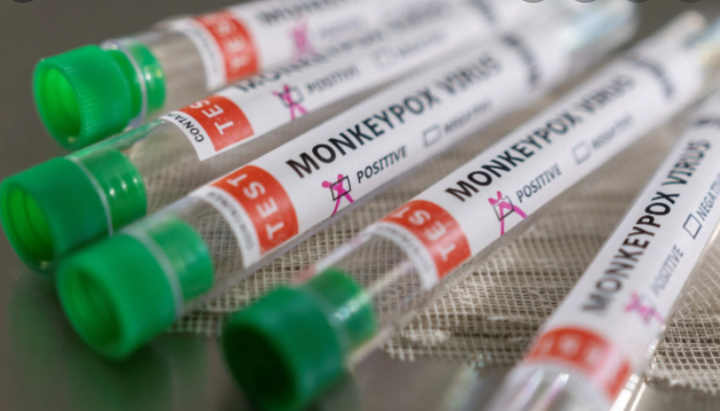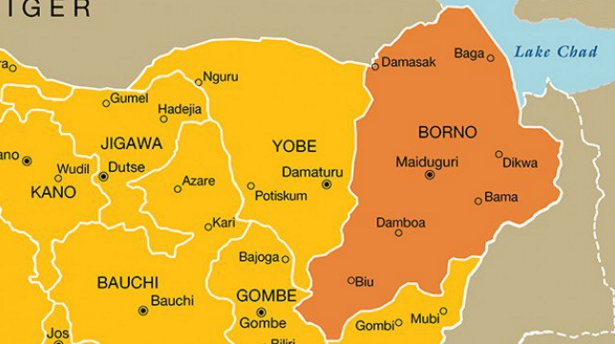File photo of mpox test tubes
Last week, several countries including the United States, United Kingdom, Spain, Italy, Portugal, and Canada, began reporting monkeypox cases.
This has raised concerns among health officials, particularly because the World Health Organisation (WHO) says it expects more cases to be reported.
How concerned should you be? Here’s what you should know.
What is monkeypox and how is it transmitted?
Advertisement
Monkeypox is a virus that originates from wild animals like rodents and is transmitted to humans with symptoms very similar to those seen in the past in smallpox patients, although it is clinically less severe.
Animal-to-human transmission can occur from direct contact with the blood, bodily fluids, or mucosal lesions of infected animals like rope squirrels, tree squirrels, Gambian poached rats, dormice, and different species of monkeys. Eating inadequately cooked meat and infected animals are possible risk factors.
Monkeypox can also spread from human-to-human, although it is less common. It can result from close contact with respiratory secretions, skin lesions of an infected person or recently contaminated objects.
Advertisement
However, transmission via droplet respiratory particles usually requires prolonged face-to-face contact.
What are the symptoms?
The early stage of the infection is characterised by fever, intense headache, swelling of the lymph nodes, back pain, muscle aches and lack of energy. After one to three days, a rash develops. The rash often starts on the face and then spreads to other parts of the body, including the palms and soles of your feet. The rash starts as flat, red bumps. The bumps then turn into blisters, which are filled with pus.
Which countries record monkeypox cases regularly?
Advertisement
Monkeypox is regularly found in Benin, Cameroon, the Central African Republic, the Democratic Republic of the Congo, Gabon, Ghana (identified in animals only), Côte d’Ivoire, Liberia, Nigeria, and Sierra Leone.
Monkeypox — or any disease — occurring regularly in a country means it is ‘endemic’ in these countries.
How has Nigeria been managing monkeypox?
The Nigeria Centre for Disease Control (NCDC) says it is involved in the engagement of community and LGA surveillance officers to support state and LGA monkeypox surveillance teams.
Advertisement
It says it has also deployed trained healthcare workers in select states on monkeypox surveillance and management.
What makes the latest outbreak of monkeypox concerning?
Advertisement
In the past, monkeypox cases discovered in a non-endemic country were found to have been imported from monkeypox endemic countries.
But according to the World Health Organisation (WHO), at least 92 cases of monkeypox with no travel link to endemic areas have been reported from 12 countries that are not endemic to the monkeypox virus.
Advertisement
The WHO said this “represents a highly unusual event”.
“Endemic monkeypox disease is normally geographically limited to West and Central Africa,” the WHO said.
Advertisement
“There is an urgent need to raise awareness about monkeypox and undertake comprehensive case finding and isolation (provided with supportive care), contact tracing and supportive care to limit further onward transmission.
“Available information suggests that human-to-human transmission is occurring among people in close physical contact with cases who are symptomatic.”
Another unusual discovery, according to the WHO, is that the cases have mainly been identified among homosexual men who sought care in primary care and sexual health clinics.
Should Nigerians worry?
According to the NCDC, since the re-emergence of monkeypox in Nigeria in September 2017, the country has continued to record sporadic cases from different states.
It added that between September 2017 and April 30, 2022, a total of 558 cases and eight deaths were confirmed across 22 states. The agency said of these cases, only 15 have been recorded in 2022 so far. “This does not constitute an outbreak,” it said.
Monkeypox – or any disease — can only be termed an outbreak if it is occurring for the first time in a country, has not occurred in a very long time, or if the number of cases increases exponentially.
Although every disease should be taken seriously, since monkeypox is endemic in Nigeria and current cases are not higher than usual, it should not be a cause for panic.
Ifedayo Adetifa, director-general of the NCDC has, however, advised Nigerians to avoid bushmeat to prevent getting the monkeypox virus.
Add a comment






